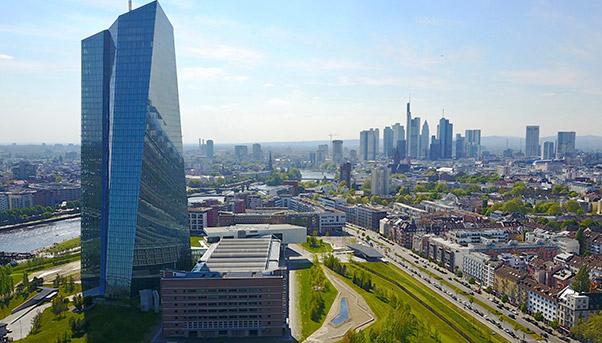
«It has been 20 years since we’ve seen a major new infrastructure project in Germany, and the existing constructions are starting to show worrying signs of age. This is something that should make us reflect», says Paul De Grauwe, 71, director of the European Institute at the London School of Economics. A Belgian economist, he is seen as the leader of the neo-Keynesian school, but he is above all a careful and objective analyst of Europe’s plans to solve its economic crisis once and for all, and the main obstacles it faces. He has been convinced for quite some time that the solutions adopted by Brussels – namely austerity at all costs and therefore a halt to public investment – was a mistake, and prolonged the recession beyond all limits in many European Union countries.
Investment and economic stimulus are what is needed to leave the crisis behind for good, he says - two ideas which a large part of the “Nordic” economies have always been against. «Only now do we start to see a few signs of a change of heart, in part because (Wolfgang) Schäuble no longer runs Germany’s economy ministry as well as because of (Angela) Merkel’s political difficulties, but this change of heart must become stronger and structural before we see infrastructure investment starting up again across the continent starting with Germany as I was saying».
Looking across the ocean, U.S. President Donald Trump based his election campaign on a maxi plan for infrastructure investment, there was talk of $1 trillion. Now a year later we have not seen much progress…
«No, I wouldn’t be pessimistic. Something is moving, and the determination with which Trump pushed forward another key part of his agenda – tax reform, even with various changes and amendments – shows overall this president has the political capability of launching ambitious programs when he wants to. Certainly, it takes time. It was clear at the North American Infrastructure Leadership Forum that took place at the end of October in San Francisco that something is moving on the infrastructure plan and that the financing is starting to arrive. The problem is still Europe. According to my calculations, the multiplier of a restrictive fiscal policy during a crisis is 1.4. That means that an improvement in primary surplus (due to cuts in spending) of one percentage point causes a contraction in GDP of at least 2.8%. Vice versa, the capacity for economic development from a serious infrastructure plan is enormous».
You mentioned political capability. Perhaps the prophecy of Jean Monnet, one of the EU founding fathers, may come true: “Europe will be forged in crises, and will be the sum of the solutions adopted for those crises." What political actions should Europe take?
«Well, public debt-sharing by EU members, at least in part, would be decisive to unblock this situation, for example. Among other things, it would ward off the current risk that one of the weaker countries could teeter on the brink of collapse without protection, with all the related consequences in terms of panic and investor flight, leading to the possible outcome of the entire Union being overwhelmed by a crisis, including countries that today are the strongest. The advantages of a fiscal union would be multiple: not only would we resolve the problem of debt refinance through risk-sharing, but also the centralization could neutralize the asymmetric shock within the euro area through fiscal transfers. Certainly, transfer union is Germany’s nightmare, which raises the question of moral hazard (Editor’s Note: Risk-taking behavior of the insured). Germany fears that these transfers could change from cyclical to structural in favor of the weaker countries, becoming a permanent feature that puts stronger countries at a disadvantage».

Do you think the conditions are in place to overcome these prejudices?
«By now it is clear that Europe is not an optimal currency area, it does not possess the requisites for a homogeneous labor market, and social solidarity is insufficient to compensate for these divergences. Monetary union springs from political forces rather than economic considerations. However, at this point, it exists, and we need to believe in it and step up the pace if we want it to make sense and to reap the benefits starting from the obvious one of monetary stability, without thinking we can turn back history. Dismantling the European Monetary System of the 1990s could have made sense, but taking apart the euro now would have devastating political, economic and social effects».
Going back to the subject of Europe and infrastructure, or rather its lack of infrastructure projects: you mentioned public debt sharing, but did you mean total or partial?
«Partial, very partial, as I said before, which is the only option with any chance of being approved by the “strong members” of the euro. The opponents to debt-sharing often argue that in absence of a true European Union, to move ahead with a stronger monetary union would be like putting the cart before the horse. However, I say that, vice versa, it would be a good start. Certainly, I repeat, we could start with a sharing of, for example, 20% of public debt. A European Finance Minister, who would also hold the position of the Eurogroup president, and could use it to start funding large European infrastructure projects through the issuing of eurobonds, could administer this pool of money. Eventually the European Finance Minister could be flanked by a regulatory agency, which in turn would work with the European Central bank that – I stress – with its Quantitative Easing programme has finally fulfilled its function as a lender of last resort therefore making a significant contribution not only to the end of the crisis but also to European unification. This regulator should have the necessary tools to both warn and help countries that for cyclical reasons are exceeding their debt parameters. You see, sharing the debt burden, like Alexander Hamilton did in the United States over 200 years ago to repair damage from the war, is the safest way to create a United States of Europe in the same way that it created the United States of America».


